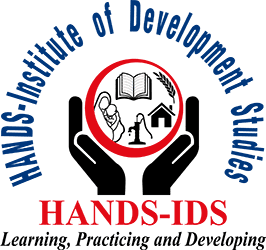Admission Policy
Admission Policy
Admission Regulations:
Students, seeking admission in Hands IDS, if eligible, will have to face aptitude exam based on general knowledge, IQ level, English proficiency etc.
Those who successfully cross the barrier will reach to next stage where they will appear for physical interviews. In that process students’ aptitude and communication skills will be taken into consideration.
Their eligibility for admission depends on the satisfaction of the interviewers who will come from the department while the whole admission process will be overseen by the Admission Department.
A list of successful candidates will be displayed in the Notice Board. Following the list candidates will be asked to submit the admission fees in the selected bank.
Students will have to submit a medical fitness certificate to the authority of the Institute.
All admissions will be provisional subject to verification of the academic documents.
The Academic Session at HANDS-IDS runs through two regular semesters namely Fall Semester (Sept –January) and Spring Semester (Feb-June), each lasting for 18 weeks. Additionally, a 10-week Summer Session (June to August) is also run for the students keen for improvement in their grades in any course..
Qualifications for Bachelor Programs:
Applicants should possess a minimum 2nd-division in HSC or equivalent from a recognized institute or board. Applicants with “A” levels or other foreign qualifications must provide an equivalence certificate issued by the Intermediate Board Committee of Chairmen (IBCC).
A Hafiz-e-Quran must provide a certificate issued by the Wafaq-ul-Madaris or comparable board in case of Pakistani candidates and relevant national authority in case of overseas Hifz-e-Quran candidates.
Candidates with disabilities are required to submit a Disability Certificate issued by a government hospital describing the nature of their disability.
- In case of transfer from one subject to another a student from the HANDS IDS must obtain permission from the Dean and Registrar offices.
- If one’s academic performance in the initial discipline falls below grade point average of 2.0, the same will carry over to the second discipline. Prior approval from the respective department heads’ is mandatory for this transfer.
- For such a transfer all prerequisites, requirements and policies of the new program, including any associated fees will be followed.
Transfer Students:
- Grades below C or 60%, will not be considered as passing grades.
- Grades earned from other institutions are not included in the calculation of The HANDS IDS grade point average.
- A maximum of 50% of the credits required for the applied bachelor’s and master’s program can be accepted for work completed prior to joining The HANDS IDS.
- Credit transfer requests will be entertained only for coursework successfully completed at an educational institution recognized by the HEC.
- Courses taken at the bachelor’s level from Polytechnic Institutions with degree-awarding status and overseas community Institutes capable of granting degrees will be evaluated by the Head of the Department. Any approved transfers will require endorsement from the Dean and the office of the Registrar.
Transfer of Credits for Completion of The HANDS IDS Degree:
Throughout the duration of the students enrolled degree program, a maximum of 18 credit hours, or six courses, can be transferred from any recognized Institute or degree-awarding institution. In addition, the student must have earned a grade of 67% or C+ in the respective course(s) for which credit transfer is applied, and at least 60% of the course content must align with that of course(s) offered at The HANDS IDS. A transfer fee equal to 50% of the course fee will be levied on the student.
Conditions for Course Transfer:
The conditions for course transfer are as follow:
- Course credits will be considered for transfer if the course material is at least 60% equivalent to that at The HANDS IDS.
- A different course will be substituted if a student receives an exemption from one of their courses due to their prior academic performance or professional orientation. The number of required courses or credit hours will not change as a result of the course exemption.
- The Head of the Department’s decision on whether or not to accept a case of course exemption will be final.
The stages to complete the admission application process for the convenience of applicants are described below. Please read the following procedure carefully:
- Announcements regarding admission are made through advertisements in newspapers, on The HANDS IDS website, and on all social media platforms (Facebook, Twitter, Instagram, etc.).
- Candidates can apply online by visiting its website or register physically at The HANDS IDS campus.
- Submit will be made within due date, along with all necessary supporting documents (such as two recent passport-size photographs, a photocopy of your CNIC or B-form, including a photocopy of candidate’s father or guardian’s CNIC, a Matric Certificate, and the mark sheet of the last examination passed.
- Candidates will receive admit card (for the aptitude test) and admission package (containing a prospectus, test schedule, and sample paper) only after submitting the admission form and paying the registration fee.
- Candidates will appear in the aptitude test on the scheduled dates (allowing about one hour for the test). Students are informed that the NTS or GMAT format is used for entrance exams.
- Then interviews will be held.
- The list of successful candidates will be announced on the website/Campus according to the schedule.
Programs of Study Bachelor of Science in:
- Bachelor of Business Administration (BBA)
- BS in Accounting and Finance (BSA&F)
- Associate Degree in Business Administration (ADBA)
- Community Development and Leadership(BSCDL)
- Bachelor of Development Studies (BSDS)
Note:
All BS courses have a duration of FOUR YEARS, following completion of Higher Secondary Certificate (HSC) in the relevant field.
